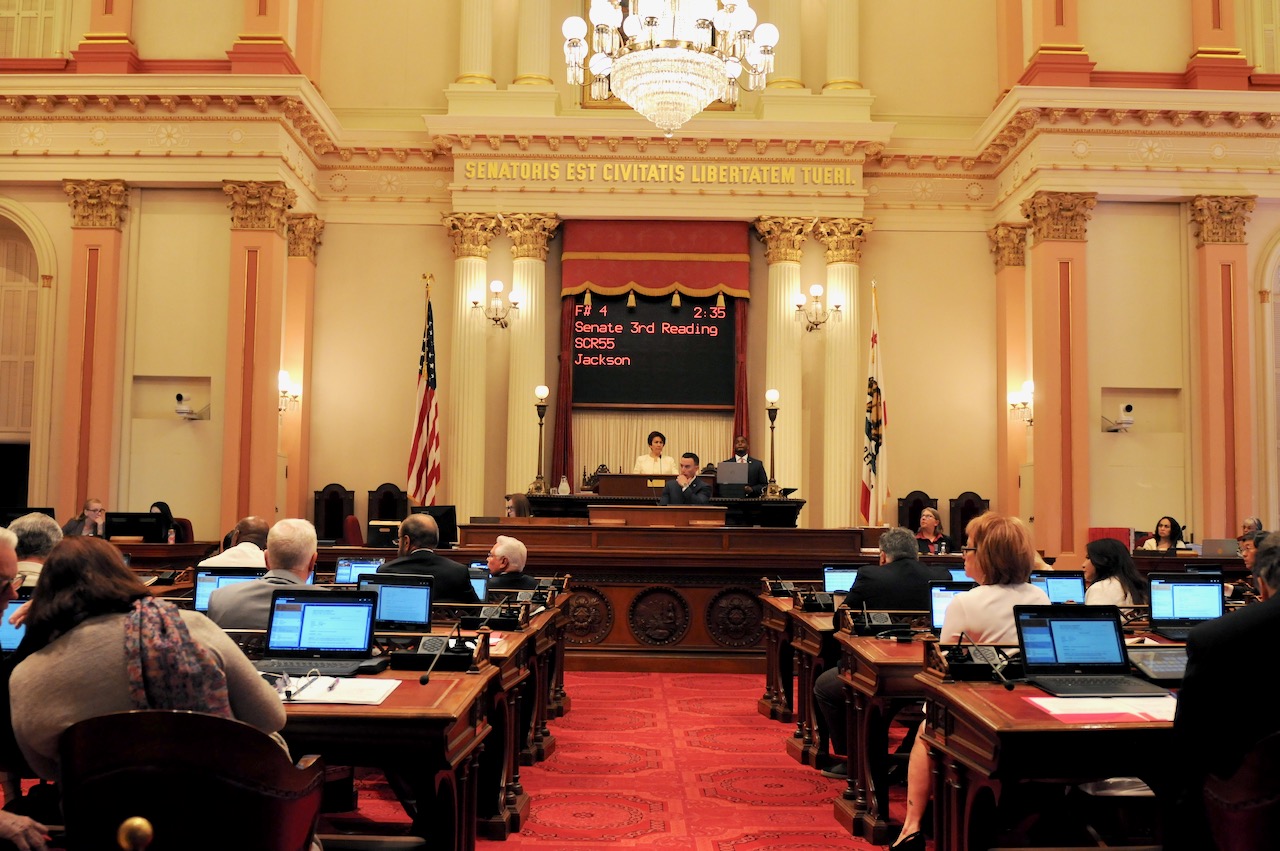
California State Capitol. (Photo: Kevin Sanders for California Globe)
Globe Quiz on California Legislation Drafting
T or F: A bill keyed as a ‘tax levy’ is a tax increase bill
By Chris Micheli, April 25, 2023 7:13 am
This quiz is to test your knowledge about legislative drafting in California.
- The Legislative Counsel provides legal advice to the Legislature, Governor, and all the other constitutional officers.
- The Legislative Counsel’s Digest provides a policy analysis of the bill’s provisions.
- A bill that has been keyed “fiscal” by the Legislative Counsel must be voted on by the Appropriations Committee.
- A “spot” bill always includes legislative intent language.
- Describe the differences among bills, resolutions, and constitutional amendments.
- The Legislative Counsel’s Digest has four keys.
- The Office of Legislative Counsel determines whether a bill should go to fiscal committee pursuant to Joint Rule 10.5.
- A bill keyed as a “tax levy” is a tax increase bill.
- Only urgency clause bills take effect immediately.
- Double jointing and contingent enactment are the same thing.
- The Legislature may make no law except by statute and may enact no statute except by bill.
- An urgency statute must include a statement of the facts constituting the necessity and that statement must be in a separate section of the bill.
- The title of the bill contains the subject matter of the bill.
- Special statutes are those that have uniform operation.
- Budget trailer bills must be listed by number in the Budget Bill.
- There are bill drafting rules found in the state Constitution, Government Code, Joint Rules, Assembly Rules, and Senate Rules.
- California’s Codes contain statutory interpretation provisions.
- California statutes are presumed to apply retroactively as well as prospectively.
- The Joint Rules require inclusion of a “relating clause” in every bill.
- All parts of a bill must be reasonably germane to a common theme or subject, which is commonly known as the single subject rule.
- If a statute would require a city or county to do a new program, or a higher level of service on an existing program, it may be a state mandated local program.
- A statute enacts only codified provisions of law.
- “Chaptering out” refers to when a later enacted statute “chapters out” or repeals an earlier enacted statute from a different legislative session.
Like most other states, California bills require an Enacting Clause, which is found in the state Constitution.
How did you do? The following are the answers:
-
-
-
- False – only the Legislature and Governor, but not the other constitutional officers.
- False – the Digest is an objective description of existing law and what the bill proposes to do.
- False – the bill will be re-referred to the fiscal committee, but does not have to be voted on. The committee could waive review.
- False – spot bills contain nonsubstantive changes to an existing statute.
- Bills enact statutes. Resolutions are used to express the view of the Legislature (there are three types). Constitutional amendments placed a proposed measure before the statewide electorate.
- True – they are vote; appropriation; fiscal committee; and, state-mandated local program.
- True – Legislative Counsel attorneys determined Digest Keys.
- False – while a tax levy is usually a collection tool used by the government, for California bills, a “tax levy” is any bill that imposes, repeals, or materially alters a state tax. The Legislative Counsel indicates in the Title and Digest of the bill whether the bill is a tax levy.
- False – under Article IV, Section 8(c)(3) of the California Constitution, “statutes calling elections, statutes providing for tax levies or appropriations for the usual current expenses of the State, and urgency statutes shall go into effect immediately upon their enactment.”
- False – contingent enactment means there is a section in a bill indicating that it is to become operative only upon the enactment of another measure. Double jointing amendments are amendments to a bill providing that the amended bill does not override the provisions of another bill where both bills propose to amend the same section of law.
- True – this is set forth in Article IV, Section 8.
- True – a statement of facts constituting the necessity shall be set forth in one section of the bill.
- True – a statute shall embrace but one subject, which shall be expressed in its title.
- False – all laws of a general nature have uniform operation.
- True – “other bills providing for appropriations related to the budget bill” shall consist only of bills identified as related to the budget in the budget bill passed by the Legislature.
- True – each document contains rules or guidance for drafting legislation in this state.
- True – most are contained in the “preliminary” or “general” sections found at the beginning on most of California’s 29 Codes.
- False – they are presumed to operate prospectively, unless there is clear evidence that the Legislature intended the statute to apply retroactively.
- False – this is a constitutional requirement.
- True – this is a constitutional requirement.
- True – this is found in Article VI of the state Constitution.
- False – a statute can enact both codified and uncodified provisions of law.
- False – “chaptering out” applies to two or more statutes enacted during the same legislative year.
- False – the Enacting Clause requirement is found in the Government Code.
-
-
Latest posts by Chris Micheli (see all)
- Automatic Repeal of State Agency Reports - July 11, 2025
- Confidential Marriages in California - July 10, 2025
- Emergency Protective Orders in California - July 9, 2025








Thank you for this quiz. It is so important that citizens understand the process of government and be involved in making legislation. This is why I am running for State Assembly 18 against Mia Bonta. The condition of our nation and state is rock bottom in terms of the economy, drugs, crime, education and the culture. This is deliberate on part of most of the legislators. Why does this legislature not pass bills to build many newnuclear power plants for example? Crime and drugs, we need to shut down the drug cartels in California and recall DA’s like Pamela Price, who have allowed Alameda County to become a haven criminals. Lastely, our banks like First Republic, Silicon Valley Bank and others are collasping as a result of allowing nationally and locally globalist speculators taking over our economy. As State Assembly member I would insist we cut the funding to all the green agenda and other projects that are sucking the life out of the people of our state and redirect that credit to the productive solutions. Their system is bankrupt and we need to enact the American System. More could be said! We need bold new leaders in our legislature, Mindy Pechenuk, Republican Candidate for State Assembly 18 in 2024